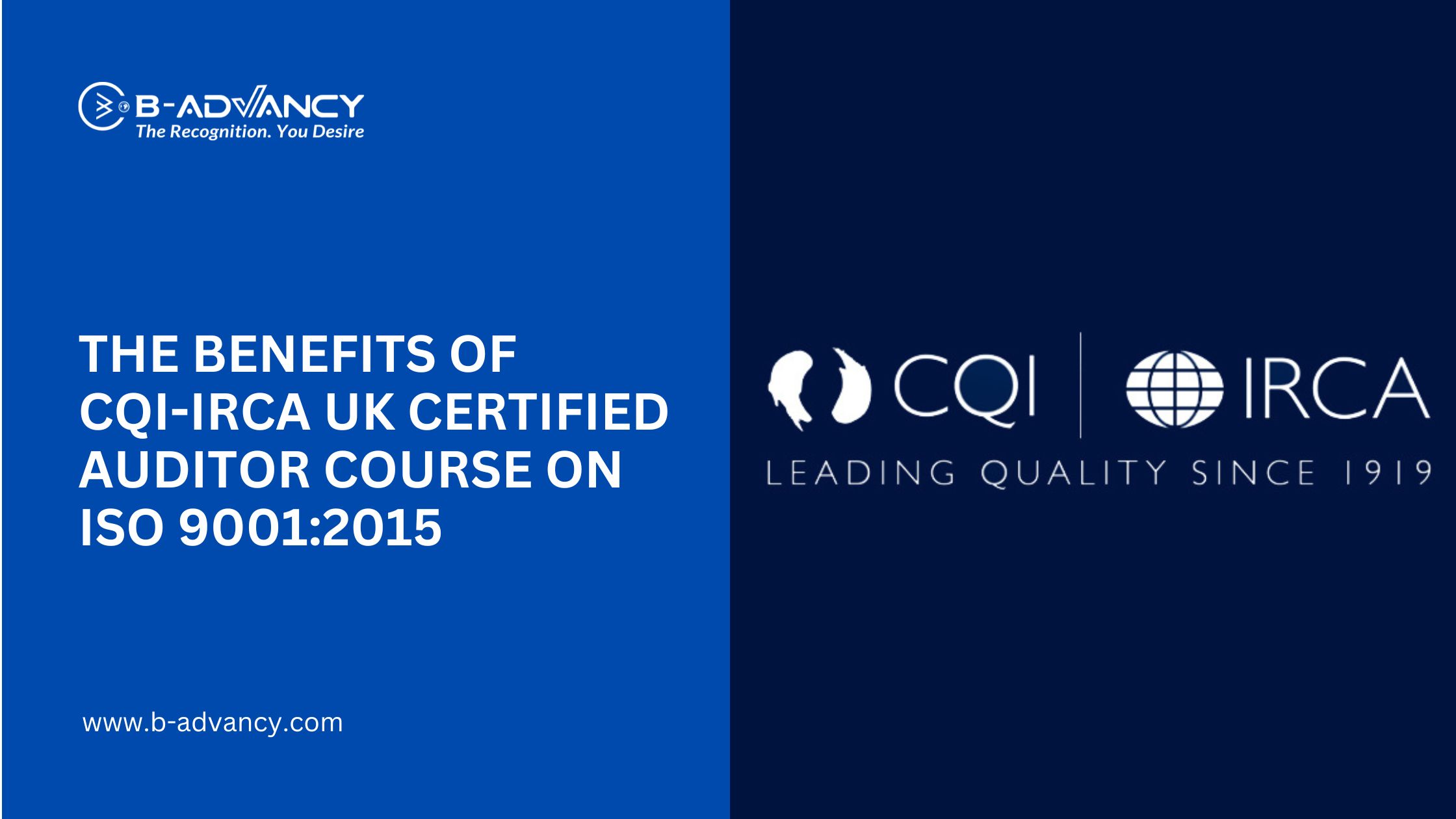
In an increasingly competitive global marketplace, organizations must ensure they provide quality products and services while continuously improving their processes. One effective way to achieve this is by implementing a robust Quality Management System (QMS) based on ISO 9001:2015 standards. For professionals aspiring to become proficient auditors in quality management, the CQI-IRCA UK Certified Auditor Course on ISO 9001:2015 offers a comprehensive training pathway. In this blog, we will explore the significance of this course, its content, benefits, and the essential skills it imparts.
ISO 9001:2015 is an international standard that sets out the criteria for a QMS. It is based on several quality management principles, including a strong customer focus, the involvement of top management, a process approach, and continuous improvement. The standard is designed to help organizations ensure they meet the needs of customers and other stakeholders while meeting statutory and regulatory requirements related to their products and services.
To effectively implement and maintain an ISO 9001:2015 QMS, organizations need skilled auditors who can assess compliance and identify areas for improvement. This is where the CQI-IRCA Certified Auditor Course plays a pivotal role.
The CQI-IRCA UK Certified Auditor Course on ISO 9001:2015 is a globally recognized program designed for individuals who wish to develop their auditing skills in the context of quality management systems. This course is suitable for anyone involved in the auditing process, including management representatives, internal auditors, and external auditors.
The course typically spans five days and is divided into theoretical and practical components. Here’s an overview of the key modules covered:
Introduction to ISO 9001:2015: Participants learn about the history and evolution of ISO 9001, its structure, and key concepts. This module lays the foundation for understanding how the standard is applied in various organizations.
Quality Management Principles: This section delves into the fundamental principles of quality management, such as customer focus, leadership, engagement of people, process approach, improvement, evidence-based decision making, and relationship management.
Auditing Principles and Practices: Participants explore the fundamentals of auditing, including types of audits, the audit process, planning, conducting, reporting, and follow-up activities. This module emphasizes the role of auditors in ensuring compliance and fostering continuous improvement.
Conducting an Audit: Practical exercises allow participants to apply their knowledge by simulating real-life audit scenarios. This hands-on experience is critical for developing the skills necessary to conduct effective audits.
Management System Documentation: Participants learn about the documentation requirements of ISO 9001:2015, including the significance of policies, procedures, and records.
Audit Reporting and Follow-Up: This section covers the essentials of preparing audit reports, managing non-conformities, and implementing corrective actions. Participants also learn how to follow up on audit findings to ensure sustained improvements.
To successfully complete the course, participants must pass an examination and demonstrate their auditing competence through practical assessments. Upon successful completion, they receive a CQI-IRCA certified auditor certificate, recognized worldwide.
Enhanced Career Opportunities: Completing the CQI-IRCA Certified Auditor Course opens up various career opportunities in quality management. Many organizations seek qualified auditors to oversee their quality assurance processes.
In-depth Knowledge of ISO Standards: Participants gain a comprehensive understanding of ISO 9001:2015 and its application in real-world scenarios, enabling them to contribute significantly to their organizations' QMS.
Practical Skills Development: The course emphasizes practical auditing skills, preparing participants to conduct audits effectively and identify areas for improvement within their organizations.
Networking Opportunities: The course brings together professionals from diverse industries, allowing participants to network, share experiences, and learn from each other.
Continuous Professional Development: The CQI-IRCA certification is a valuable addition to any professional's credentials, showcasing their commitment to quality management and continuous improvement.
The CQI-IRCA UK Certified Auditor Course is ideal for:
Internal auditors looking to enhance their auditing skills and knowledge.
Management representatives responsible for overseeing the QMS.
Quality managers and professionals seeking formal auditor training.
Consultants who want to provide valuable insights into quality management.
In today's fast-paced business environment, organizations must prioritize quality management to remain competitive. The CQI-IRCA UK Certified Auditor Course on ISO 9001:2015 equips professionals with the necessary skills and knowledge to assess and improve their organizations' quality management systems. By investing in this training, individuals not only enhance their career prospects but also contribute significantly to their organizations' success.
Whether you're an aspiring auditor or a quality management professional, this course is a vital step toward becoming an effective advocate for quality and continuous improvement within your organization. Don't miss the opportunity to elevate your auditing skills and contribute to fostering a culture of excellence in your workplace!